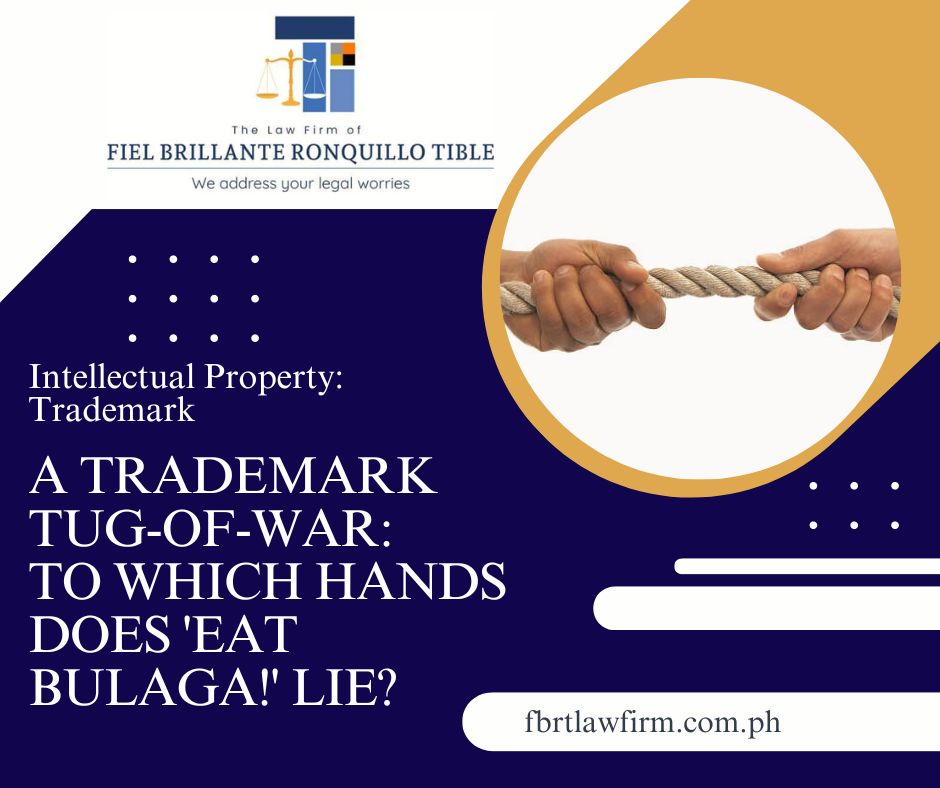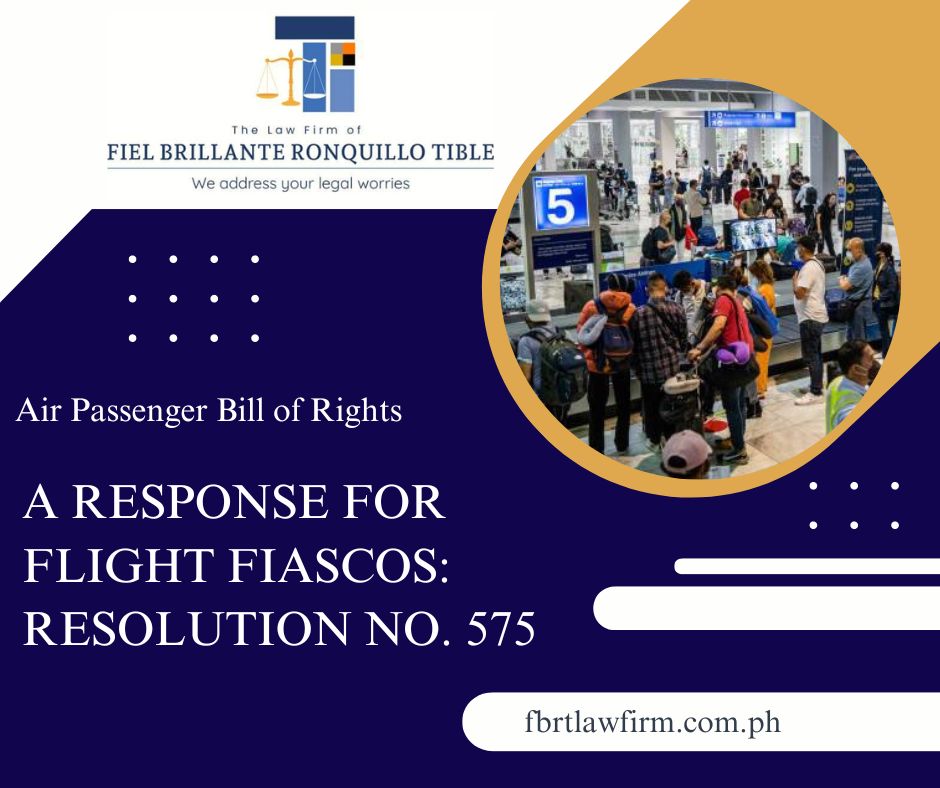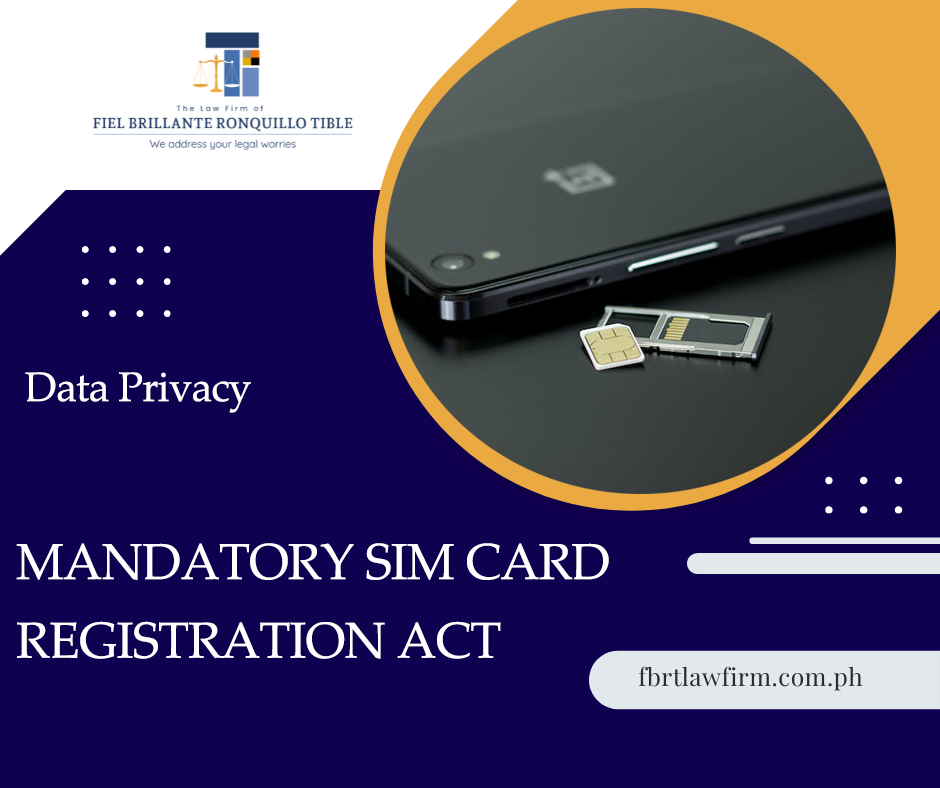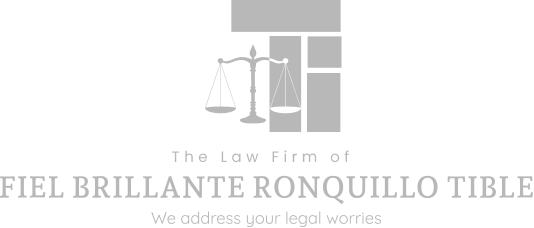
The National Government under the “Bayanihan to Heal As One Act” had been empowered to provide an emergency subsidy to an estimated eighteen (18) million low income families. This is in recognition of the struggle of the many Filipino families for economic survival caused by the protocols imposed relative to the Enhanced Community Quarantine in Luzon since 17 March 2020.
The emergency subsidy shall dispense cash or non- cash assistance in the amount of at least Five Thousand Pesos (Php 5,000.00) to a maximum of Eight Thousand Pesos (PhP 8,000.00) a month for two (2) months (April and May 2020) to provide for basic food, medicine, and toiletries. The subsidy shall be computed based on the prevailing regional minimum wage rates and the existing subsidy programs of the local and national government like the DSWD’s Conditional Cash Transfer (CCT) program and the rice subsidy program, estimated at an average of Php 2,150.00 per month per family. It must be pointed out that each of the target beneficiaries will only receive a total cash or non-cash assistance not in excess of the prescribed thresholds.
This Emergency Subsidy Program (ESP) will be coursed through the various Social Amelioration Programs to be headed by the Department of Social Welfare and Development (DSWD) in coordination and collaboration with other national government agencies such as, but not limited to, Department of Labor and Employment (DOLE), Department of Trade and Industry (DTI), Department of Agriculture (DA), Department of Finance (DOF), Department of Budget and Management (DBM),and Department of the Interior and Local Government (DILG).
- Covered Beneficiaries and the Corresponding Documentary Requirements
The target beneficiaries refer to the families that belong to either the poor or informal sector which are at risk of not earning a living during the Enhanced Community Quarantine, who may have at least one (1) member belonging to any of the following vulnerable or disadvantaged sectors:
| BENEFICIARIES | SUPPORTING DOCUMENTS |
| 1. Senior Citizens | * Senior Citizen’s ID |
| 2.Persons with Disability | * Persons with disability ID; or Certificate of Separation from or Suspension of Work |
| 3. Pregnant and Lactating Women | * Valid ID; * Certification from RHU; or * Birth Certificate of Child, if available |
| 4. Solo Parents | * Solo Parent’s ID; or *Certificate of Employment/ Separation from or Suspension of Work |
| 5. Overseas Filipinos (OFs) in Distress -they shall refer to OFs who were repatriated or banned from traveling outside the Philippines on account of the COVID-19 breakout, from January 2020 until the lifting of the community quarantine. | * Valid Passport Bio Page; and Copy of any of the following:
1. Passport arrival stamp; |
| 6. Indigent Indigenous Peoples -those certified as poor by the National Household Targeting System for Poverty Reduction (NHTS- PR) or the subject Field Office of the DSWD or those who are living in recognized ancestral domains whose income solely depend on subsistence economy as those engaged in indigenous means of livelihood as hunting, gathering or foraging as certified by the NCIP or tribal chieftain/council of elders or those who are informal economy workers. | * Certification from the NCIP or the tribal chieftain/council of elders that the beneficiaries are Indigenous Peoples (IPs) and are on subsistence economy. |
| 7. Underprivileged Sector and Homeless Citizens – individuals or families residing in urban, urbanizable and rural areas whose income or combined family income falls within the poverty threshold as defined by the National Economic and Development Authority (NEDA) or those who do not own housing facilities. This shall also include those who live in makeshift dwelling units and do not enjoy security of tenure. | * Certification from Barangay (proving that they are homeless families or belonging to other vulnerable groups) or from the CSWDO/MSWDO/PSWDO where they are currently located. |
| 8. Informal Economy Workers – those who are independent, self- employed, small-scale producers and distributors of goods and services like the following:
a) Directly Hired or Occasional Workers – Persons who are contracted to do work on an irregular basis, hired by the direct recipient of the service and whose salary is completely dependent upon the completion of the particular work for which he or she was hired (e.g. laundry maid); b) Subcontracted Workers – Any person who is an employee of a subcontractor, as defined by Article 106 and 107 of the Labor Code (e.g. pakyaw workers); c) Homeworkers – Any person who performs in or about his home any processing of goods or materials, in whole or in part, which have been furnished directly or indirectly by an employer and thereafter to be returned to the latter (e.g. family enterprise such as those involved in crafts making, native delicacy production, home-based food processing); d) House helpers – Persons defined as “kasambahay” under Section 4 (d) of R.A. 10361 or the Domestic Workers Act who are currently not receiving any remuneration from their family of work, or who cannot report to work due to the community quarantine (e.g. kasambahay or family driver); e) Drivers of Pedicab, Tricycle, PUJs, UVs, PUBs, Taxi, Transport Network Vehicle Service (TNVS) and Transport Network Companies (TNC) – Persons driving a pedicab, tricycle, jeepney, van, taxi, TNVS, TNC, owned by another person and only subject to a boundary system; provided that those who own the vehicle they drive are still eligible if their income is solely dependent thereon (e.g. Angkas and Joyride drivers); f) Micro-entrepreneurs and Producers, Operators of Sari-sari Stores, and the like – Persons operating independent, small- scale enterprises and distributors of goods and services the scope of business or service any business activity or enterprise engaged in industry, agri-business and/or services that has: (1) an asset size (less land) of less than P100,000; g) Family Enterprise Owners – Families operating or managing small businesses such as retail, food production, and vending; (not limited to owners of carinderia, fruit or vegetable vendors and vendors in streets, RTW, etc.); h) Sub Minimum Wage Earners – Any person who earns a wage below the prescribed minimum and is the sole income-earner of their family (e.g. dishwashers or helpers in carinderia); i) Farmers, Fisherfolks, and Farm workers – persons engaged in agriculture and fisheries related activities, farm services and secondary processing whose monthly family income falls under the poverty line; and, j) Employees affected by “no work, no pay” policy and not covered by DOLE Order No. 209, Series of 2020 or any DOLE issuance/s on adjustment measures program; k) Stranded workers – for the purpose of these guidelines, refer to individuals affected by work suspension or closure who are in sites or places other than their permanent residence and unable to return home on account of the community quarantine (e.g. construction workers stranded in their respective construction site/s). |
As may be applicable:
* Driver’s License; * TODA ID; or * Certification of membership from the Organization/ Association; or * Certificate of Public Convenience (CPC); or * Certification from the Barangay/ Municipality, for TODA only. * Employment ID; orKasambahay ID; or * Certificate of Employment/Separation from or Suspension of Work from the employer; * Proof of business; * Any other document showing employment/ occupation/enterprise; or barangay clearance * Establishment Report; and company payroll OTHERS: (For rice farmers) * RSBSA Enrollment Stub (for Cash Assistance) * Notice of Cash Grant (for Cash Assistance) * Loan Application (for SURE Aid) * Any one (1) government-issued ID with picture * Duly accomplished simplified Promissory Note (PN) (For Service-Conduit Borrower) * Loan Application * List of Eligible Rice Farmers * Board Resolution for financial assistance and designating at least two (2) authorized signatories to execute loan documents with identified GFI Standard PN, Authority to Debit Deposit Account Post Release: * Liquidation report on the loans disbursed prior to next loan availment *Deed of Assignment of Sub-PNs |
- Social Amelioration Programs (SAP)
To mitigate the socio-economic impact of the COVID-19 health crisis during the Enhanced Community Quarantine (ECQ), the government adopted the following different social amelioration programs:
- Food and Non-Food Items (FNI) Distribution – food and essential personal hygiene and family items regularly provided by the DSWD during disaster operations; however, taking into consideration the declaration of the Enhanced Community Quarantine to lessen exposure to other individuals, DSWD shall provide food packs during the quarantine period as an augmentation to the LGUs, as agreed by the members of the Inter-Agency Task Force Technical Working Group (IATF-TWG) on social amelioration.
2. Assistance to Individuals in Crisis Situation (AICS) – outright cash in the amount of Three Thousand Pesos (Ph 3,000.00) shall be provided by the DSWD to the target beneficiaries to assist in providing the basic needs of their families. Provided that, a family shall be entitled to a cash assistance amounting to Five Thousand Pesos (Php 5,000.00) when two or more family members belong to the “target beneficiaries” as identified above. This assistance shall only be given once a month during the quarantine period.
Under this SAP, a burial assistance in the maximum amount of TWENTY FIVE THOUSAND PESOS (PHP 25,000), may also be claimed by families that suffered loss due to death of member/s caused by COVID-19, to defray the funeral expenses of the deceased; Provided that, the assistance may be claimed only for indigent COVID-19 confirmed cases and PUIs whether they, at the time of death, are undergoing home quarantine or admitted in a public or private facility.
- Livelihood Assistance Grants (LAG) – this SAP will only be provided to the beneficiary families of DSWD’s Sustainable Livelihood Program (SLP) having at least one (1) member who is a worker in the informal sector, and is displaced by reason of the declaration. The maximum amount of LAG per eligible family shall not exceed Fifteen Thousand Pesos (Php15,000.00). A family shall only be qualified to avail the assistance once regardless of the number of family members belonging to the identified sectors.
- COVID-19 Adjustment Measures Program (CAMP). This is the DOLE’s safety net program for affected workers in the formal sector to mitigate the adverse economic impacts of reduction of income brought about by the COVID-19 pandemic. The program is a one-time financial assistance equivalent to Php 5,000 which shall be non-conditional and to be given regardless of the worker’s employment status.
- Tulong Panghanapbuhay sa Ating Displaced Disadvantaged Workers Barangay Ko, Bahay Ko Disinfection/Sanitation Project (TUPAD #BKBK) – A community-based safety net program of DOLE that provides temporary wage employment to the informal economy workers, such as but not limited to underemployed, self-employed, and displaced marginalized workers who have lost their livelihood or whose earnings were affected due to the community quarantine against COVID-19.
For the implementation of TUPAD #BKBK, the following are no longer eligible to avail of the assistance under the program:
a) Those who have availed of the P5,000 one-time cash assistance through the DOLE CAMP;
b) Those who are under the expanded and enhanced Pantawid Pamilyang Pilipino Program;
c) Those who have already received cash assistance through the DSWD Assistance to Individuals in Crisis Situation (AICS); or,
d) Rice farmers who have already received cash assistance from the DA.
Qualified beneficiaries shall be required to work for four (4) hours a day for a maximum of ten (10) days and will be paid wages equivalent to 100% of the prevailing highest minimum wage in the region. The payment of wages shall be through money remittance service providers or direct cash pay-out. The nature of work shall be the disinfection/sanitation of the qualified beneficiaries’ houses or dwellings and immediate vicinity.
- COVID-19 P3-ERF – A One Billion Peso (PhP1,000,000,000.00) special financing program by the Small Business Corporation (SBCorp) of the Department of Trade in Industry (DTI) for MSMEs affected by COVID-19. The loan is available to all micro and small enterprises with at least one year continuous operation prior to March 2020, and whose businesses suffered drastic reduction in sales during the ensuing epidemic
Takenote thatthis loan facility shall be implemented, by the proper DTI Memorandum Circular, as soon as the Community Quarantine declarations are lifted.
- Moratorium on Loan Payments of Small Business Corporation Borrowers – this refers to the payment moratorium under the Regular and P3 loan programs of the Small Business Corporation (SBCorp) which shall be granted to affected borrowers situated in areas declared under community quarantine or partial lockdown, with the following conditions:
a) A request is submitted by affected borrowers thru email or SMS;
b) Affected borrowers shall be allowed to pay only their interest due for the succeeding six months. Interest rate will continue to accrue during the moratorium. The term of their loan shall be extended based on the number of months covered by the moratorium.
- Price Freeze – to ensure that prices of basic necessities shall be automatically frozen at their prevailing prices in areas declared under state of calamity as provided in Joint Memorandum Circular No 2020-01 signed by DTI, DA and DOH on 18 March 2020.
- Cash Assistance for Rice Farmers (Rice Farmer Financial Assistance) – A one-time provision of decoupled payments amounting to Five Thousand Pesos (Php 5,000.00) to eligible rice farmer beneficiaries through identified Government Financial Institutions. It shall cater small holder rice farmers whose farm sizes range from 1 hectare and below. These farmers must be registered in the updated Registry System for Basic Sectors in Agriculture (RSBSA) as per approved registration and updating protocol.
10. Survival and Recovery (SURE) Assistance for Marginalized, Small Farmers and Fishers – provides for an interest and collateral-free loan assistance which shall be extended to eligible farmers and fishers in the amount of Twenty Five Thousand Pesos (Php 25,000.00) per borrower. Eligible beneficiaries of this program are marginalized, small farmers and fishers affected by ECQ to be validated by the DA Regional Field Offices and Local Government Units. Government financial institutions and Non-Government Financial Institutions shall implement this program by extending loans directly to eligible loan borrowers.
11. Recovery Package for Micro and Small Enterprises Engaged in Agriculture and Fisheries Food Production, and other Supply Chain Activities in Accordance with the Agripreneurship Development Fund/Program of the ACPC—a loan assistance at concessionary rates, and capacity building for micro and small enterprises engaged in agriculture and fisheries production, and other supply chain activities. Eligible borrowers may avail of loan assistance amounting to Three Hundred Thousand Pesos (Php 300,000.00) up to 90% of their projected cost, but not to exceed Php 15.0 million. Government financial institutions and Non-Government Financial Institutions shall implement this program by extending loans directly to eligible loan borrowers.
12. Expanded and Enhanced Pantawid Pamilyang Pilipino Program (4Ps) – adoption and employment of an improved 4Ps for a period of two months in the form of cash or non-cash assistance. The DSWD and DOLE shall transfer cash, cash voucher, or goods through the LGUs or directly to families who have no incomes or savings to draw from, including families working in the informal economy and those who are not currently recipients of the current 4Ps, of an amount adequate to restore capacity to purchase basic
food and other essential items during the duration of the quarantine. For this purpose, DSWD and DOLE Secretaries may approve the temporary emergency standards of eligibility and level of benefits.
13. Livelihood Seeding Program/Negosyo Serbisyo sa Barangay – A Two Hundred Million fund (Php 200,000,000) that provides assistance to micro-entrepreneurs affected by calamities. This assistance will be in the form of: enterprise development training; livelihood kit amounting to at least Php 5,000 but not more than PhP8,000; and, business counselling/mentoring.
- SOCIAL AMELORIATION CARD (SAC)
As a step in availing SAP, target beneficiaries are required to fill-out a form called Social Amelioration Card. It is a form, distributed at the barangay level, that captures the family profile which will be the mechanism for the affected families to access the social amelioration programs of the government.
The basic process to receive the social amelioration package are as follows:
Step 1: The DSWD or its authorized representatives will distribute Social Amelioration Card (SAC) forms on a house to house basis. The SAC forms serve as monitoring and validation tools to help the government identify the families that need urgent financial assistance.
Step 2: The head of the family will write all the necessary information on the SAC form in big letters.
Step 3: Make sure that the form is complete. Submit one of the forms to the LGU official when they return for collection. Keep the other form (duplicate) for reference and monitoring.
Step 4: The DSWD and other government agencies will send the aid to the LGU for distribution to beneficiaries.
- ADDITIONAL REMINDERS
The following are disqualified to received social amelioration coverage:
- All government employees, elected and appointed, in the National, Regional, Provincial, City/Municipal and Barangay levels, regardless of work status.
- Government employees who are solo parents or those who are already retired and senior citizens (pensioners).
- Households with members who are both employed in the government and unemployed.
- 4Ps beneficiaries are automatic recipients of the SAP and may no longer be required to fill-up SAC forms for additional coverage.
The following may qualify or possibly qualify for the social amelioration coverage:
- Poor family with no income, or whose family members are unemployed.
- Indigent senior citizens, PWDs and solo parents.
- Indigent fishermen who are dependent on their haul for their daily food supply.
- Indigent farmers who are paid to cultivate others farm/land.
- Recipients of Cash for Work Project or TUPAD of DOLE.
It must be pointed out that the IATF-Technical Working Group on Social Amelioration may, from time to time, recommend to the Office of the President facilitative interventions such as: (a) Reprieve in Utility Bills; (b) Reprieve in loans from GSIS, SSS and PAG-IBIG; (c) Reduction of Monetary Transfer Fees; (d) Waiving of Penalties by Supermarkets to Suppliers; (e) Waiver of Lease Rentals; and (f) Benefits for frontliners.
Source:
Related Reads:
- Striking a Balance on the Mandatory Public Disclosure of Information on COVID-19 and the Confidentiality of a Patient’s Medical Records
- DTI and DOLE Supplemental Guidelines on Workplace Prevention and Control of Covid-19
- One-Stop-Shop for OFWs






